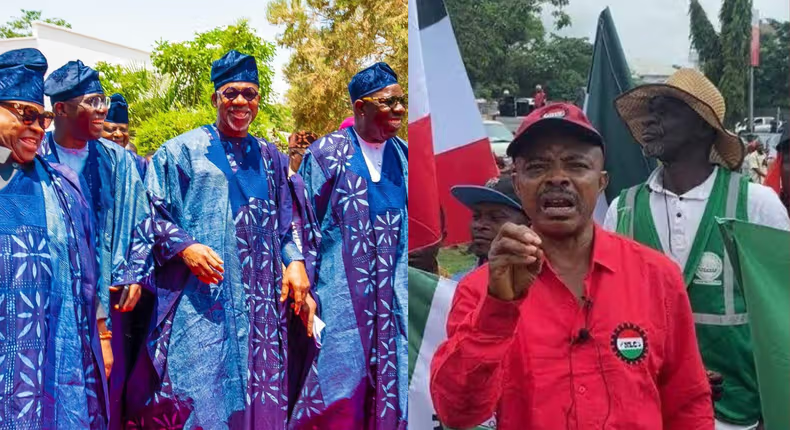The debate over the minimum wage in Nigeria has been intensifying, with the Southern Governors advocating for the decentralization of minimum wage negotiations to allow each state to set wages based on their financial capabilities. This proposal aims to address the diverse economic realities across Nigeria’s states, where some can afford higher wages while others struggle with basic salary obligations.
### Key Points of the Proposal:
1. **Decentralization of Minimum Wage**:
– Southern Governors, under the Southern Governors’ Forum led by Governor Dapo Abiodun, suggest that states should individually negotiate minimum wages with labor unions based on their financial capacity.
– This move is intended to create a more realistic and sustainable wage structure that reflects the cost of living and economic conditions in each state.
2. **Current National Minimum Wage**:
– The national minimum wage was ₦30,000 under the Minimum Wage Act of 2019, which expired in April 2024.
– The Federal Government, supported by the organized private sector, has proposed a new minimum wage of ₦62,000, which is still below the labor unions’ demand of ₦250,000.
3. **Governors’ Concerns**:
– Governors argue that a uniform minimum wage would strain the finances of many states, forcing them to spend most of their revenue on salaries and leaving little for developmental projects.
– They highlight the issue of consequential adjustments, which would require raising wages across all levels of employment, including pensions.
4. **Financial Viability**:
– States like Lagos, Rivers, Edo, and Kano are financially robust enough to meet higher wage demands and continue developmental projects.
– Other states, such as Zamfara and Yobe, face significant financial challenges and may struggle to meet even the current minimum wage requirements.
5. **Implications of Decoupling**:
– If the proposal to allow states to set their minimum wages is accepted, it could lead to significant disparities in government workers’ earnings across different states.
– States with stronger economies might set higher minimum wages, while less economically viable states could set lower wages based on their financial capacity.
– The organized private sector would still be bound by the National Minimum Wage Act, ensuring some level of wage standardization.
The proposal by the Southern Governors reflects a broader debate on how to balance fair wages with economic sustainability, aiming to create a wage system that acknowledges the economic diversity of Nigeria’s states.

